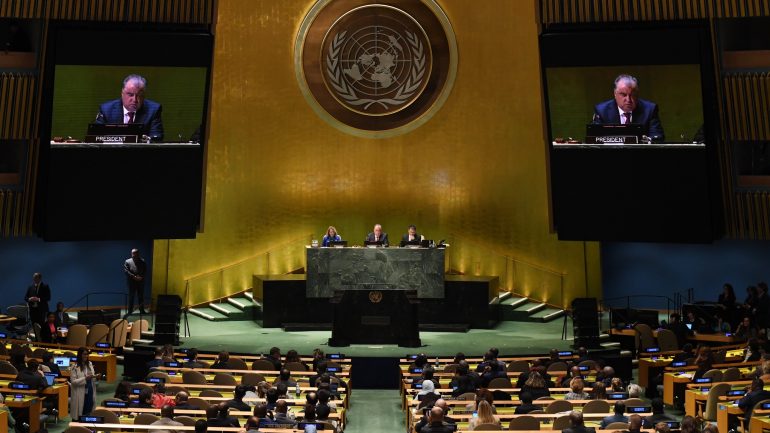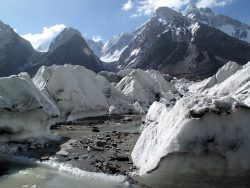ON THE ISSUE OF THE IMPLEMENTATION OF RESOLUTION 77/158 OF THE UN GENERAL ASSEMBLY OF DECEMBER 14, 2022 “INTERNATIONAL YEAR FOR THE PROTECTION OF GLACIERS, 2025” BY THE REPUBLIC OF TAJIKISTAN.

- Автор apatj
- Категория - Новости академии
Water is the basis of life on the planet. Water resources are inextricably linked to sustainable development issues. Social, cultural, economic and political aspects are associated with this vital resource. Water resources are cross-cutting and the achievement of many of the Sustainable Development Goals depends on their availability due to the close relationship of water resources with climate, energy, environment, food security, poverty, gender equality and health, and other issues. With climate change having a major impact on the global economy, society as a whole and the environment, water scarcity is becoming the biggest obstacle to achieving internationally agreed water-related goals and targets, including those on the agenda. days in the field of sustainable development for the period up to 2030.
Despite significant progress in expanding access to clean drinking water and sanitation, billions of people, mostly in rural areas, continue to be deprived of these basic services. Globally, one in three people lack access to safe drinking water, two in five people lack basic handwashing facilities with soap and water, and more than 673 million people continue to practice open defecation.
The COVID-19 pandemic has demonstrated the critical importance of sanitation, hygiene and adequate access to clean water in order to prevent and contain disease. Hand hygiene saves lives. Yet billions of people still lack access to safe water and sanitation, and funding is inadequate.
It is worth noting that the Republic of Tajikistan has been promoting issues related to water resources in the global development agenda for more than two decades.
At the initiative of the Republic of Tajikistan, the General Assembly of the United Nations adopted 9 resolutions on water issues, and their implementation has laid a worthy foundation for achieving agreed global goals in the field of water, as well as for the implementation of sustainable development.
A vivid example of this phenomenon is the rapid melting of glaciers, both in the Arctic and Antarctica, and in the continental parts of the planet.
At the initiative of the Republic of Tajikistan, within the framework of the United Nations General Assembly, Resolution 77/158 of December 14, 2022 “International Year for the Protection of Glaciers, 2025”, announced by the United Nations General Assembly, was adopted, which will continue integrated efforts to address water and climate issues on a global scale.
In this context, in 2025 in Dushanbe we will hold a high-level international conference on the conservation of glaciers.
According to paragraph 2, Resolution 77/158 of the UNGA dated December 14, 2022 “International Year for the Protection of Glaciers, 2025”, “Invites all Member States, organizations of the United Nations system, other international and regional organizations and civil society, including non- governmental organizations, individuals and other relevant stakeholders, to observe the International Year and the World Day, as appropriate, at all levels through activities aimed at raising awareness of the importance of glaciers, snow and ice in the climate system and the hydrological cycle, and the economic, social and environmental impacts of the impending changes in the Earth’s cryosphere, and to share best practices and knowledge in this regard” was organized by the governments of Tajikistan and the Netherlands from March 22 to March 24, 2023, which included a ceremony opening and closing sessions, six plenary sessions and five interactive dialogues involving many their stakeholders. The conference also featured a number of high-level special events and side events organized by Member States, UN agencies and other stakeholders.
It should be noted that the conference went down in history not only in terms of promoting a correct understanding of the challenges and problems of the industry, but also in finding effective and efficient solutions.
In this context, joint efforts should be aimed at concrete results and further monitoring of the agreements reached so that the expectations of the world community from this process can be properly implemented.
However, it should be noted that the obligations of the Republic of Tajikistan on the implementation of Resolution 77/158 of the UN General Assembly of December 14, 2022, largely correspond to the 6th goal of sustainable development “Ensuring the availability and rational use of water resources and sanitation for all”, which includes the following tasks :
- By 2030, ensure universal and equitable access to safe and affordable drinking water for all
- By 2030, achieve universal and equitable access to adequate sanitation and hygiene and end open defecation, paying special attention to the needs of women and girls and those in vulnerable situations
- By 2030, improve water quality by reducing pollution, eliminating waste dumping and minimizing releases of hazardous chemicals and materials, halving the share of raw wastewater, and significantly increasing the recycling and safe reuse of wastewater worldwide
- By 2030, substantially improve water-use efficiency across all sectors and ensure sustainable abstraction and supply of freshwater to address water scarcity and significantly reduce the number of people suffering from water scarcity
- By 2030, achieve integrated water resources management at all levels, including through transboundary cooperation where necessary
- By 2020, protect and restore water-related ecosystems, including mountains, forests, wetlands, rivers, aquifers and lakes
- By 2030, increase international cooperation and support to strengthen the capacity of developing countries to implement water supply and sanitation activities and programs, including runoff collection, desalination, improved water efficiency, wastewater treatment, and the application of recycling and reuse technologies.
- Support and strengthen the participation of local communities in improving water management and sanitation.
That is why, in the process of preparing for the conference, the Republic of Tajikistan, together with the Kingdom of the Netherlands and partners from the United Nations, focused on making commitments to accelerate action in achieving development goals related to water resources.
In order to ensure full access of the country’s population to high-quality drinking water and sanitation by 2030, a Targeted National Program will be developed, within which we intend to gradually double the amount of funding.
In the Republic of Tajikistan, 98 percent of electricity is generated by hydroelectric power plants, and this at a time when we have mastered only 5 percent of the hydropower potential of our country.
Therefore, we have decided to double our hydropower potential by 2050 and make our respective contribution to the development of a green economy.
It should be noted that today Tajikistan ranks sixth in the world in terms of the share of electricity generation from renewable water sources, that is, “green” energy.
Speech by the Leader of the Nation, the President of the Republic of Tajikistan, Emomali Rahmon, at the opening ceremony of the UN Conference on the Midterm Comprehensive Review of the Objectives of the International Decade for Action “Water for Sustainable Development, 2018-2028” dated March 23, 2023 (USA, New York), he noted, that “taking this into account and in order to constantly monitor the implementation of the commitments made, I propose to hold the next United Nations Water Conference in Tajikistan in 2028 at the end of the International Decade for Action on Water Resources.
We propose to make extensive use of the Dushanbe Water Process as a platform for tracking the implementation of actions and commitments, especially the Water Action Agenda.
I am absolutely sure that our joint efforts, our new commitments and actions within the framework of this conference, as well as the implementation of its results, will bring the desired results.
Water is the main source of life.
Tajikistan is a country with large reserves of drinking water.
We brought with us some water from Lake Sarez, which is located in the mountains of Tajikistan, at an altitude of 3500 meters.
Sarez, as a rare example of clean water resources originating from the glaciers and snow-capped peaks of our country, in fact, can provide the population of the Central Asian region with high-quality drinking water for many years.
The Secretary General of the United Nations, Mr. Guterres, and, I think, some other people present here, during their visits to Tajikistan, had the opportunity to visit this lake and our glaciers.” Everyone knows that under the influence of climate change and other global processes, sources of drinking water are declining every year».
For example, out of 14 thousand glaciers in Tajikistan over the past few decades, one thousand have completely disappeared.
At the initiative of Tajikistan, in 2025 in Dushanbe it is planned to hold a high-level international conference on the conservation of glaciers, which corresponds to the implementation of paragraph 4 of Resolution 77/158 of December 14, 2022 “International Year for the Protection of Glaciers, 2025”.
Thus, the implementation of Resolution 77/158 of December 14, 2022 “International Year for the Protection of Glaciers, 2025”, within the framework of national, regional and international programs for the protection and efficient use of all sources of drinking water, as well as the need to develop and implement reliable modern mechanisms for water supply and effective management of water issues, requires fruitful cooperation with all partners.
However, the joint efforts of the world community within the framework of the implementation of Resolution 77/158 of December 14, 2022 “International Year for the Protection of Glaciers, 2025”, will achieve the agreed international goals related to water.
Еrgash AKHMEDOV,
PhD in Law Associate Professor of the
Department of International
Law Academy



